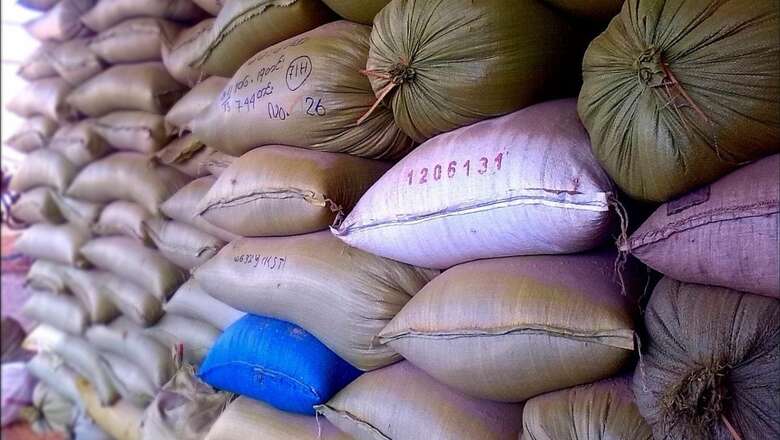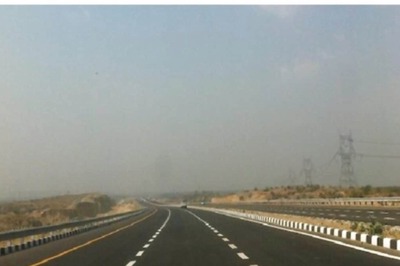
views
Export restrictions on foodstuffs have been a contentious issue both on the domestic and international front. These measures are generally criticised due to their likely adverse impact on the food security of importing countries, inflating international prices, disrupting the global supply chains, being labelled as unreliable exporters, and causing opportunity losses for domestic traders and farmers. The issue is also being intensely discussed in the run-up to the 13th WTO Ministerial Conference, with countries having strong divergent positions.
Despite the concerns, many countries, including India, the European Union, Thailand, Malaysia, Egypt, Ghana, Argentina, Ukraine, Russia, Turkey, and Vietnam, have implemented these restrictions. Importantly, these measures have been used and implemented regardless of the status of the imposing member as a developed, developing, least developed, or net food-importing country.
At a time of food crisis due to factors such as climate change, the Covid pandemic, and geopolitical tensions, the global food market experiences scarcity and a sudden increase in international prices. To ensure foodstuffs at affordable prices and safeguard their vulnerable population, countries tend to adopt different trade measures, including export restrictions and reductions in import tariffs to boost the supply of foodstuffs in their domestic markets.
Export Restrictions by India
In the recent past, India has implemented export restrictions on certain agricultural products such as wheat, rice, sugar, and onions. However, a few countries were exempted from these measures. India’s approach of imposing export restrictions along with the exemption of certain countries has several strong reasons.
First, it is feared that unhindered exports of foodstuffs during the food crisis could not only lead to domestic shortages and high inflation but also jeopardise the food security of India’s 1.4 billion people. This concern particularly escalates as importing countries usually steeply reduce their tariffs during the crisis to encourage imports. Importantly, the food security of the exporting country is equally important as that of the importing country and cannot be endangered.
Second, amidst a crisis, it can also happen that a net exporting country becomes a net food importer within a short span of time. In such a scenario, export restrictions avoid untoward situations where a country first exports a substantial quantity of its domestic production and subsequently has to import the same foodstuff at much higher prices to meet the basic food security needs of its people.
Third, India has always remained committed to ensuring global food security. It has continued to provide foodgrains to neighbouring and vulnerable countries such as Bhutan, Gambia, Mali, Kenya, Egypt, and Guinea upon their request, keeping in mind their food security interests.
Fourth, India’s contribution to the United Nations World Food Programme (WFP) during the crisis has been commendable in the fight against hunger.
Fifth, vested interest groups may exploit the crisis for financial gains at the expense of hungry people in vulnerable countries. It may happen that the foodgrains do not reach needy countries but to the highest bidder, as in the case of vaccine hoarding by wealthier countries during the pandemic. Furthermore, it is documented by a report of the United Nations in 2023 that 90 per cent of corn and 60 per cent of wheat have been exported to high and upper-middle-income nations instead of countries with high levels of hunger under the Black Sea Grain Initiative, which aimed at combating hunger in the background of Russia-Ukraine geopolitical tensions. Further, ‘The Hunger Profiteers’ investigation in 2022 also highlighted that financial speculators made a killing during the food crisis.
Sixth, it cannot be denied that a country may import more than what is required for its food security and then re-export such surplus for commercial gains. By regulating exports targeted to poor countries during a crisis, such situations can be avoided.
These reasons clearly demonstrate India’s commitment to feeding the neediest in the world while ensuring domestic food security instead of profiting from the suffering of the poor.
The issue at the WTO
WTO rules allow temporary export bans or restrictions to prevent or relieve critical shortages of foodstuffs or other products essential to the exporting country. Notably, at the 12th Ministerial Conference in 2022, it was agreed to exempt food purchases by WFP from the ambit of export restrictions. Currently, some countries seek to enhance the transparency and predictability of these measures by modifying the WTO rules for global food security. Their specific demands include advance notifications and clarifying terms like temporary and critical shortage of foodstuffs.
There are concerns regarding such additional disciplines. Firstly, advance notifications will undermine the purpose of imposing export restrictions. In case of advance notifications, there is a high chance that market players can manipulate the situation by exporting food in large quantities before the actual restriction can come into effect, leaving the domestic economy reeling from critical shortages. Second, in the name of transparency, attempts are being made to define various criteria such as ‘critical shortage,’ which may make it difficult to impose the restrictions during the crisis. Existing WTO rules are adequate as they balance the food security of both exporting and importing countries.
Sum Up
In essence, export restrictions should be viewed as an exigency measure. Even India’s agricultural export policy advises caution in using these measures while noting the need for such restrictive measures in domestic emergencies. Also, world hunger cannot be solely addressed through additional disciplines on export restrictions. Hence, if WTO members are really concerned about global food security, then it is time to find a permanent solution to the issue of price-support-backed public stockholding for food security purposes. Already, 80 members have tabled a proposal in this regard to fight against hunger. The long silence of WTO members on the issue of public stockholding programme is deafening and exposes the insensitivity towards millions of hungry people across the world.
Sachin Kumar Sharma, Alisha Goswami and Teesta Lahiri work at the Centre for WTO Studies, IIFT. Views expressed in the above piece are personal and solely that of the author. They do not necessarily reflect News18’s views.




















Comments
0 comment